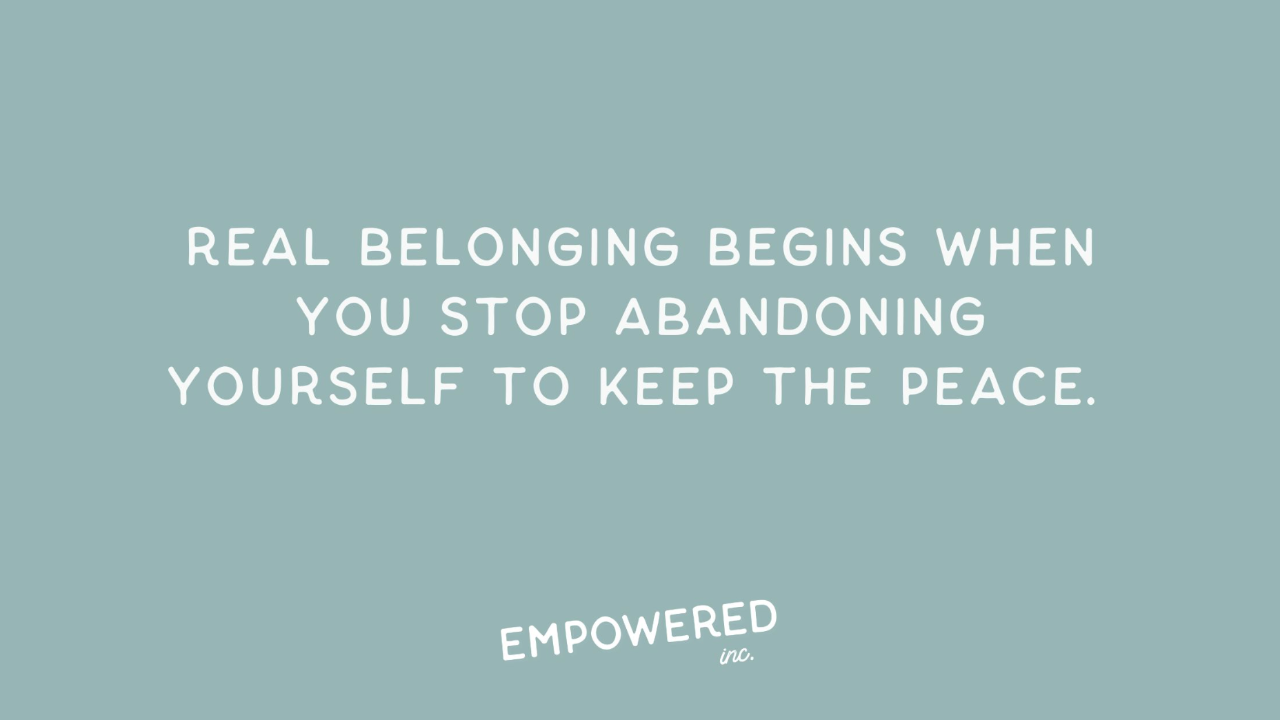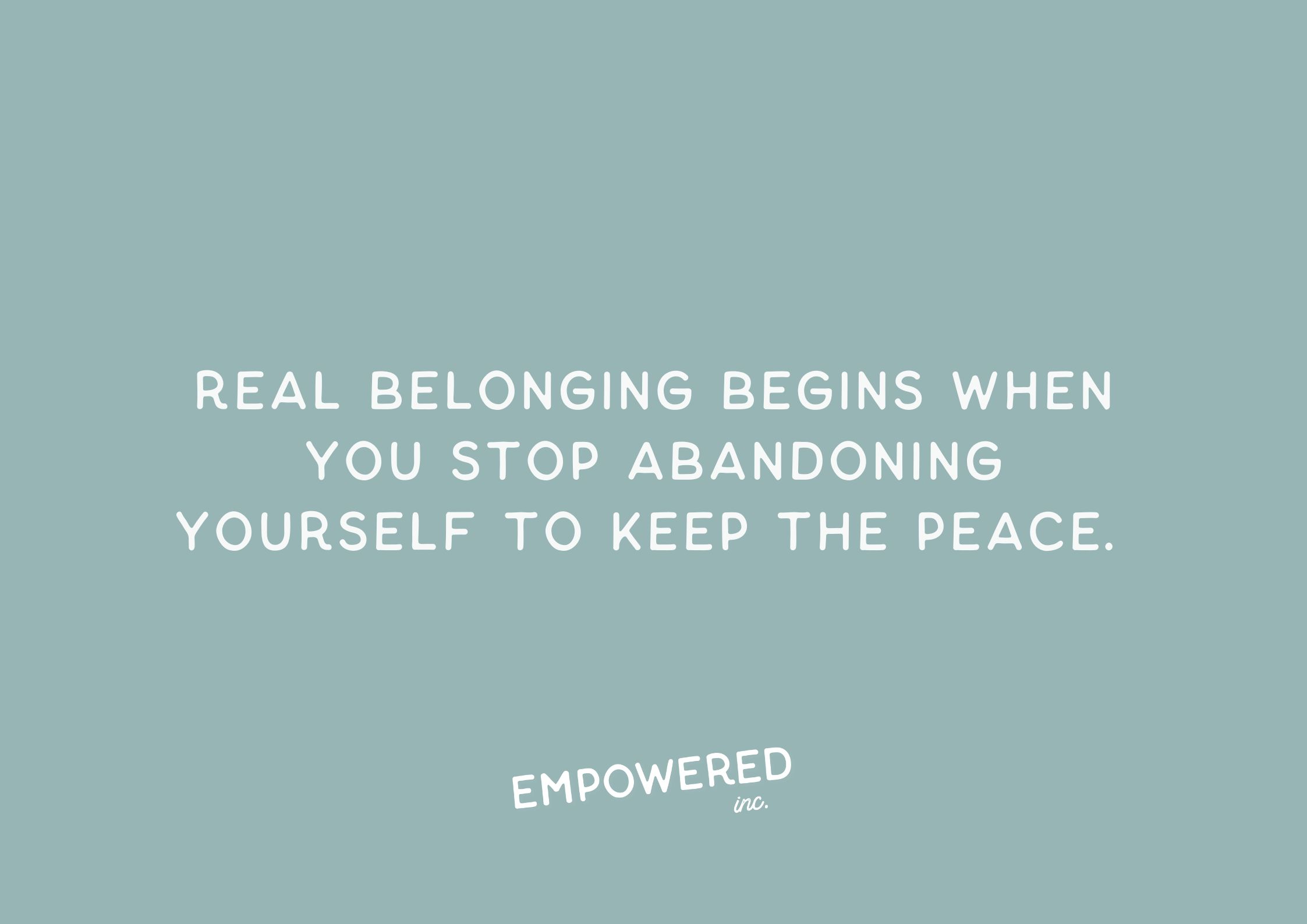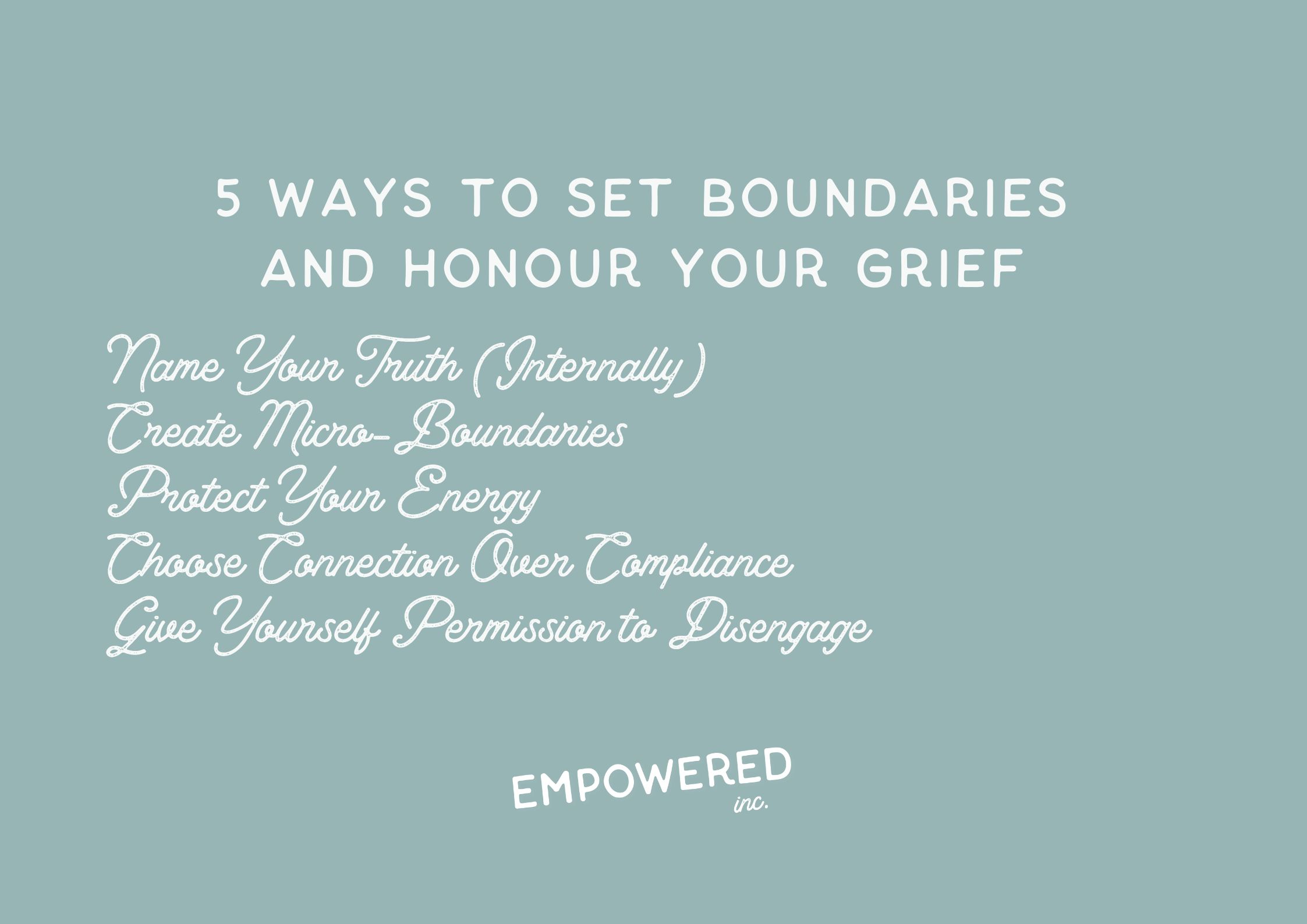Grief and Belonging
Oct 24, 2025
How to Stop Pretending And Set Boundaries
You can only pretend to be fine for so long before something in you starts to ache for truth. The smile, the small talk, the polite answers to questions that scrape against the edges of your grief.
When you’re moving through loss, pretending can start to feel like survival—because, in many ways, it is. Fitting in helps you feel safe when you feel like crumbling. But belonging built on pretending isn’t belonging at all.
The Hidden Cost of Pretending You’re Okay

My journey to “un-pretending” started after my ninth pregnancy. I had a traumatic experience navigating an ectopic pregnancy that landed me in the hospital repeatedly. After three weeks, I was discharged with no tubes—and no baby.
That loss broke something open in me. I no longer had time for what I call “the surface.” I didn’t want to talk about the weather, my family, or my work. I craved real and honest conversations, only.
Yet, I continued to pretend that everything was okay: the forced smiles at family dinners, the small talk that drained me, and the mental checklist of “acceptable” answers to personal questions. Then I asked myself: What is the cost of pretending? And even more importantly: How can I be me—and stop?
How Pretending Creates Belonging

We live in a culture that celebrates composure—where being “put together” is mistaken for being okay. Pretending stems from old patterns, fear of rejection and a desire to be safe and belong. And it’s not wrong—it’s adaptive.
When we don’t fit in, we often turn discomfort inward, questioning ourselves—our choices, our emotions, our very worth. So we pretend because performing keeps us safe. Until it doesn’t.
I have had eight pregnancy losses and have one living child. Throughout my losses, I pretended to fit in. I ignored the hurt, anger and everything in between. I didn’t want to burden others or make them uncomfortable. And truthfully, I didn’t want to sit with my own experience. So I pretended and chose “the surface” kind of belonging.
But after my last loss, the truth caught up with me. I felt the emotional cost of pretending: disconnection, resentment, inner fatigue, and a profound loss of self-trust.
Grief, by its nature, demands honesty. It asks for stillness, for space, for something real. Yet our social scripts ask us to do the opposite: to be agreeable, cheerful, and easy to be around. The result? We end up performing belonging instead of experiencing it.
When You Can’t Leave, and Can’t Pretend: Grief Boundaries That Save You

I am a people pleaser by nature, and have been for most of my life. I found worth through acceptance and belonging. Mix in nine pregnancies and relentless loss, and people-pleasing became a recipe for “emotional collapse.”
Once I accepted that pretending wasn’t serving me, I knew I needed tangible ways to shift. I wanted to honour my truth while still surviving environments that didn’t feel safe. Because sometimes, you can’t avoid the spaces that drain you—the family dinner, the work gathering, the conversation that feels like walking through emotional landmines.
When saying no isn’t an option, boundaries become your way back to yourself.
5 Ways to Set Boundaries and Honour Your Grief
- Name Your Truth (Internally)
Before entering the environment, identify what’s true for you—what you feel, what you need, what you’ll allow. Clarity = power. - Create Micro-Boundaries
Boundaries don’t always have to be loud. They can look like stepping outside for air, choosing not to engage certain topics, or leaving early. - Protect Your Energy
Visualize your emotional boundaries—through breath, mindfulness, or small physical rituals (holding a stone, deep exhale before responding). - Choose Connection Over Compliance
Focus on one or two people who feel safe or neutral instead of trying to please everyone. - Give Yourself Permission to Disengage
You can be kind and still say, “I’d rather not talk about that.”
Grief Strips Away the Performance—And That’s Where Belonging Begins
Lately, I’ve been asking myself: What does belonging really mean? Does belonging mean being accepted by others—or could it begin within ourselves, in a quiet act of self-acceptance?
Accepting ourselves amidst loss can feel like an overwhelming feat. But once we are able to honour and welcome our entire experience—the sadness, the frustration, the anger—we become more equipped to step into environments with grace and truth. Real belonging begins when you stop abandoning yourself to keep the peace.
I learned this the hard way through a decade of loss—feeling the toll in my mid-thirties, when I finally took a stand for myself. Imagine what would become possible if we learned to do this sooner—to follow our intuition when things don’t feel right, to advocate for ourselves before burnout or heartbreak forces us to.
Grief changes you. It strips away the version of yourself that once knew how to perform—and asks for something truer. For this, I am grateful.
-Kirsten & the Empowered Edu Team
Resources to Help You Navigate Grief Personally & Professionally
Empowered Courses - designed for helping professionals, caregivers, and community leaders to become fluent in grief’s many languages—spoken and unspoken.
Empowered Blog - a space for insight, guidance, and inspiration. Explore topics on healing, resilience, and professional development, and discover new ways to support yourself and others.
Empowered Community - Facebook communities to share, learn, and connect with others who understand both the heart and the work of grief.
Empowering Updates
Subscribe to get the BEST Empowered updates delivered to your inbox:
We don't like spam either. You can unsubscribe at any time.



